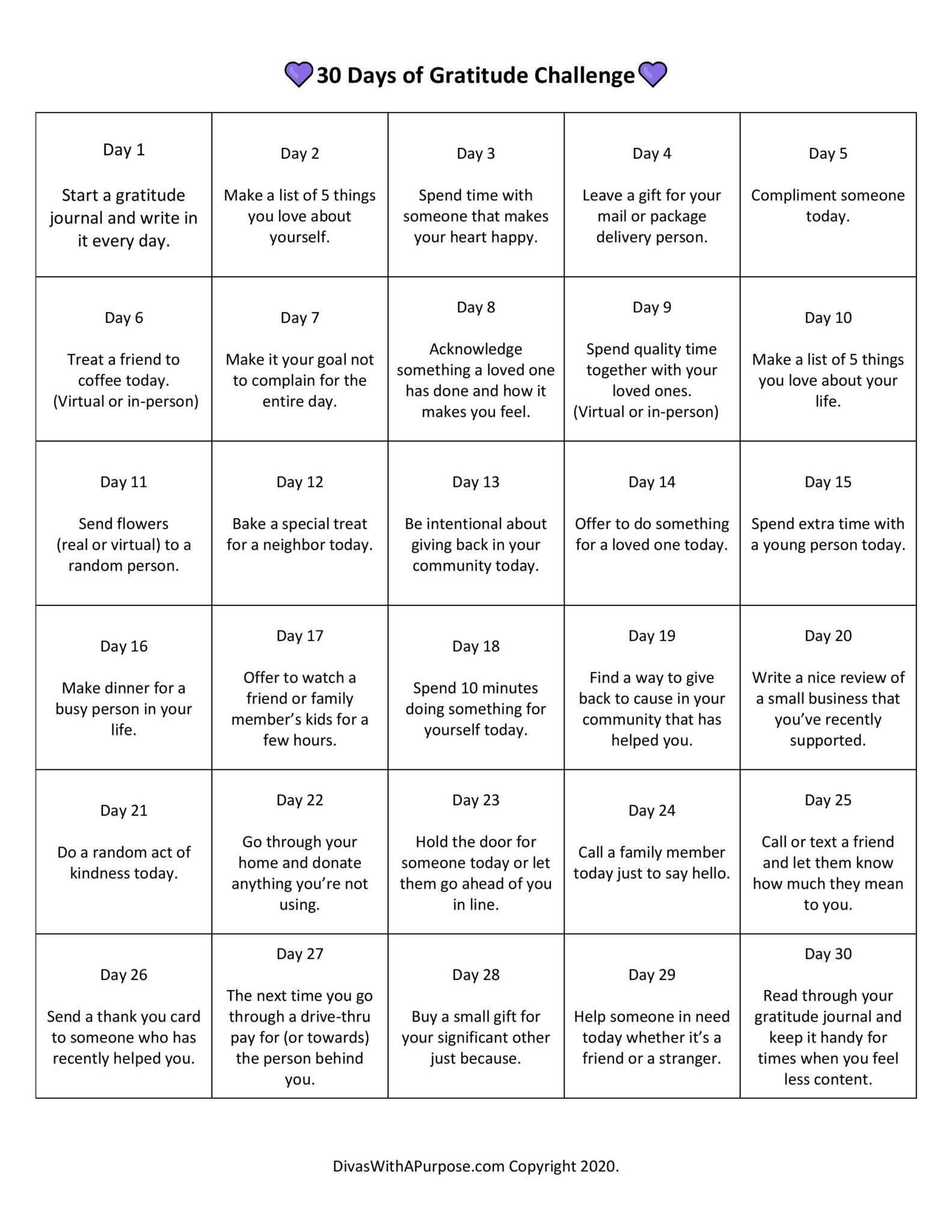6 Benefits of Gratitude
The wide-ranging benefits of gratitude include improving our personality, physical health, sleep quality, relationships, careers, and memories by cultivating more positive emotions, resilience, optimism and overall wellbeing.
Gratitude can change your life. Having a positive attitude and being thankful even for the smallest things in our lives can lead to a trickle effect of health, social, mental and emotional benefits. I recently came across an article discussing the different benefits of gratitude in our daily lives – both personal and professional.

Here is an expanded look at some of the top ways practicing gratitude can improve your life:
Gratitude shapes our personalities
Making a conscious effort to focus on gratitude can shape our personalities in a positive way. By choosing to be thankful and focusing on the good things in life, we can become more positive, optimistic people. Some benefits of cultivating a grateful personality include:
- Increased happiness and life satisfaction. Studies show that people who practice gratitude experience higher levels of positive emotions such as joy, enthusiasm, love, happiness, and optimism.
- Improved self-esteem and resilience. Grateful people are able to appreciate their own self-worth and abilities. This allows them to bounce back more quickly from hardships and challenges.
- More generosity and compassion. Thankful people are found to be more likely to help others and provide social support. Focusing on blessings cultivates compassion.
- Deeper and more meaningful relationships. By expressing gratitude, people are able to foster closer and more supportive personal connections.
- Reduced materialism. Grateful people place less importance on material goods and are more satisfied with what they have.
Since 2011, I have made a conscious effort to focus on gratitude. I can honestly say that I can tell a difference in my overall demeanor and health. I do not get sick as much as I used to and I’m a happier person. I still have my share of stresses and struggles but I choose to focus and put my energies on those things that I can directly impact.
Gratitude improves physical health
In addition to becoming a more positive person, practicing gratitude can also lead to significant physical health benefits, including:
- Stronger immune system. Grateful people experience fewer illnesses and less severe symptoms when they do get sick. Gratitude helps immune cells function more effectively.
- Lower blood pressure. Studies link gratitude with reduced levels of stress, which directly impacts blood pressure.
- Improved heart health. Thankful people have healthier heart rates and better blood circulation.
- Better quality sleep. Expressing gratitude can help reduce stress, anxiety and depression which all interfere with sleep.
- Reduced inflammation. Inflammation is connected to many diseases. Gratitude and positive emotions help decrease inflammatory responses in the body.
- Increased exercise. Thankful people are more likely to maintain healthy exercise habits which provide physical benefits.
Some additional ways gratitude may improve physical health:
- Motivating healthier lifestyle choices like diet and exercise
- Helping manage pain better
- Decreasing headaches
- Reducing digestive issues
- Increasing tolerance for discomfort
Gratitude decreases insomnia
Feeling grateful at bedtime can also help improve sleep quality and duration. Here’s how it works:
- Reduces worry and ruminating thoughts. Expressing thanks helps curb anxious thoughts that keep people up at night.
- Lowers stress hormones. Cortisol and other hormones released during stress make it harder to fall and stay asleep. Gratitude helps lower stress.
- Increases relaxation response. Thankfulness creates a state of tranquility that makes it easier to fall asleep.
- Positivity before bed. Thinking positive thoughts about blessings rather than problems promotes peace of mind.
- Improves depression symptoms. Depression and gratitude cannot coexist. Reduced depression means fewer sleep difficulties.
- Enhances overall well-being. Better mood, reduced pain, and lower blood pressure brought on by gratitude all contribute to improved sleep.
Some simple gratitude practices to try before bed include:
- Writing in a gratitude journal
- Thinking of 3 good things that happened that day
- Writing a thank you note to someone
- Expressing gratitude to a higher power through prayer
Gratitude gives us more happy memories
Practicing gratitude can also change how our brain stores and recalls memories in a helpful way:
- We remember positive events more vividly. Gratitude helps sharpen memory for pleasant experiences.
- Negative memories fade faster. Thankful people ruminate less on bad experiences from the past.
- Gratitude creates upward spirals. Positive thinking patterns breed more positivity through gratitude.
- Sets up a positive filter. Grateful thinking causes brains to scan for more positives to be thankful for.
- Memories include more sensory details. Higher levels of gratitude are linked to memories with more vivid details.
- Time slows down. Grateful moments are remembered as feeling longer, further expanding happy memories.
- Broadened thinking patterns. Grateful brains take in more information and see things from new, positive perspectives.
Our memories and thoughts are shaped by our emotions. The way we remember an event is often shaped by how we were feeling, what we were doing and who was involved. Even when negative things happen, with an attitude of gratitude your brain will hone in on the positive, happy memories.
Gratitude strengthens relationships
Developing an attitude of gratitude can also help cultivate healthier, more satisfying relationships. Some of the interpersonal benefits of thankfulness include:
- Building trust. Expressing gratitude helps relationships grow stronger through appreciation.
- Increasing closeness. Grateful people are more likely to express vulnerability and support.
- Improving communication. Thankful people engage in more constructive, positive conversations.
- Increasing generosity. Grateful people are more giving of their time, resources and emotional support.
- Bonding. Gratitude shared between two people increases feelings of connectedness.
- Strengthening teamwork. Thankful leaders and team members work together more cohesively.
- Resolving conflicts. Gratitude helps let go of grudges, reduce bitterness and improve forgiveness.
- Enhancing marriage. Spouses who practice gratitude report increased marital satisfaction and stability.
Relationships thrive when people take time to acknowledge and express thankfulness for each other. Gratitude serves as a strong connector between family members, friends, coworkers and communities.
Gratitude enhances career success
Practicing gratitude in the workplace provides many professional advantages, including:
- Increased productivity. Thankful employees have higher work performance and efficiency.
- Improved networking. Grateful professionals build wider networks of loyal colleagues.
- Stronger resilience. Gratitude helps perseverance in the face of workplace stress and setbacks.
- Higher motivation. Employees who express gratitude are more driven and engaged in their roles.
- Greater creativity. Thankful workers generate more innovative ideas and solutions.
- Improved decision-making. Gratitude helps leaders consider perspectives more broadly.
- Stronger ethics. Grateful company cultures are linked to more ethical behaviors and reduced fraud.
- Boosted sales. Thankful salespeople using gratitude with customers increase sales numbers.
Simple practices like beginning meetings by having each person share something they are grateful for can profoundly increase morale, collaboration, and performance.
The research is clear that making gratitude a regular habit provides a wide range of physical, mental, relational, and professional advantages. The more we practice sincere thankfulness for life’s blessings – big and small – the greater benefits we will experience, including overall well-being. Try keeping a gratitude journal, writing thank you notes, meditating on what you are grateful for or simply telling loved ones how much you appreciate them. With some concerted effort, we can all cultivate an attitude of gratitude that will enhance our lives in many positive ways.


